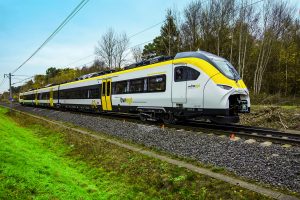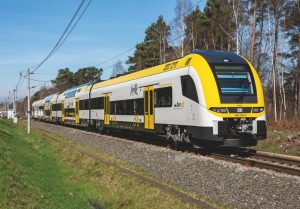
The German Railway Authority gave its initial authorisation for Mireo trains for the timetable change in June 2020 when are expected to enter regional service on the Offenburg – Freiburg – Basel/Neuenburg (Rhine) route.
“We are pleased that from mid-June, our passengers will be able to get to their destination in new trains much faster than before in local transport. We connect North Baden from Karlsruhe to Switzerland with an attractive transport concept,” said David Weltzien, Chairman DB Regio Baden-Württemberg.
Ministry for Transport in the state of Baden-Württemberg awarded Siemens Mobility a contract for the supply of 24 Mireo trains and 15 Desiro HC double-decker trains to be operated by DB Regio.
Through this contract, Siemens Mobility marked the first order for Mireo regional multiple-unit trains.
The Mireo is designed as a scalable articulated train. All technical components are installed either beneath the floor or on the roof, allowing increased interior space for passengers’ comfort. The three-car trains have 200 seats and a generous number of multipurpose spaces.
“The new trains for the Rhine Valley Railway make regional rail transport in the region even more attractive and offer an incentive to make greater use of rail, a climate-friendly means of transport. This is another building block in the state’s policy of developing Baden-Württemberg into a pioneer of sustainable mobility,” said Transport Minister of Baden-Württemberg, Winfried Hermann.

Along with the Mireo trains, 15 new, comfortable and energy-saving Desiro HC trains from Siemens Mobility will also operate as a regional express on the Karlsruhe – Offenburg – Freiburg – Basel route. The double-decker Desiro HC is particularly characterized by its high reliability and availability and is very popular with passengers because of its large capacity and comfort.
The design of the Mireo and Desiro HC trains ensures optimised aerodynamics and energy efficiency for each of the components. They make optimal use of the energy used and, thanks to modern design principles, achieve a reduction in energy consumption of up to 25% compared to vehicles on the market with the same capacity and are also designed to be maintenance-friendly.
Their weigh is approximately 25 percent less thanks to their lightweight construction.
Share on:



